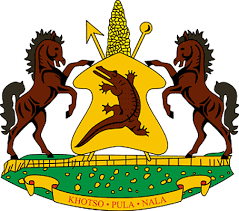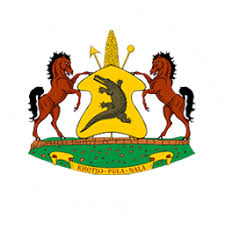Ntsoaki Motaung
The World Food Programme (WFP)’s Assistant Executive Director for Programme and Policy Development, Valerie Guarnieri, underscored the commitment to sourcing 80 percent of school feeding programme meals from local producers during a press conference held in Maseru on Tuesday.
The press conference marked the conclusion of a high-level visit by delegates from three United Nations (UN) agencies to Lesotho, invited by His Majesty King Letsie III, who serves as the FAO Special Goodwill Ambassador for Nutrition.
The delegation included Guarnieri, Food and Agriculture Organisation (FAO) Director-General Dr. Qu Dongyu, and the International Fund for Agricultural Development (IFAD) Associate Vice-President for Programme Management Donal Brown.
Guarnieri expressed her appreciation for the WFP-supported school feeding programme in Lesotho, highlighting the critical role of nutritious school meals in attracting and retaining children in school.
“School meals bring children to school, keep them there, and help them learn. The evidence is indisputable,” she stated, emphasising the importance of ensuring that every child has access to at least one nutritious meal at school.
She also noted that sourcing these meals locally offers a unique opportunity to drive food systems transformation.
“This is why Lesotho, along with 97 other governments, signed up to the School Meals Coalition, committing to ensure that all children benefit from nutritious meals at school,” Guarnieri added.
Guarnieri reaffirmed Lesotho’s commitment to sourcing 80 percent of school meals locally and pledged WFP’s continued support in this endeavour. She cited similar successes in other countries where WFP has supported governments in implementing national homegrown school feeding programmes, benefiting 9 million children.
“In Lesotho, school meals will serve as a powerful catalyst for boosting food production and achieving food self-sufficiency,” Guarnieri said.
“We have already mobilised $2 million to support this initiative. The rollout of homegrown school meals will begin in two southern districts, focusing on both pre-primary schools—where WFP provides direct feeding support—and primary schools, where we will assist the government in sourcing food locally.”
Earlier that day, His Majesty King Letsie III also praised the impact of the school feeding programme during the High-Level Dialogue on Food Systems.
“As I have traveled across the country, I have observed and appreciated the school feeding programmes that ensure at least one nutritious meal is provided to a child,” the King remarked.
He emphasised that nutrition, community involvement in agriculture, and food security are interconnected aspects of development that require collective effort to optimize resources and expand the fiscal capacity needed to achieve sustainable progress.
Summary
- The World Food Programme (WFP)’s Assistant Executive Director for Programme and Policy Development, Valerie Guarnieri, underscored the commitment to sourcing 80 percent of school feeding programme meals from local producers during a press conference held in Maseru on Tuesday.
- Guarnieri expressed her appreciation for the WFP-supported school feeding programme in Lesotho, highlighting the critical role of nutritious school meals in attracting and retaining children in school.
- “As I have traveled across the country, I have observed and appreciated the school feeding programmes that ensure at least one nutritious meal is provided to a child,” the King remarked.

Your Trusted Source for News and Insights in Lesotho!
At Newsday Media, we are passionate about delivering accurate, timely, and engaging news and multimedia content to our diverse audience. Founded with the vision of revolutionizing the media landscape in Lesotho, we have grown into a leading hybrid media company that blends traditional journalism with innovative digital platforms.









